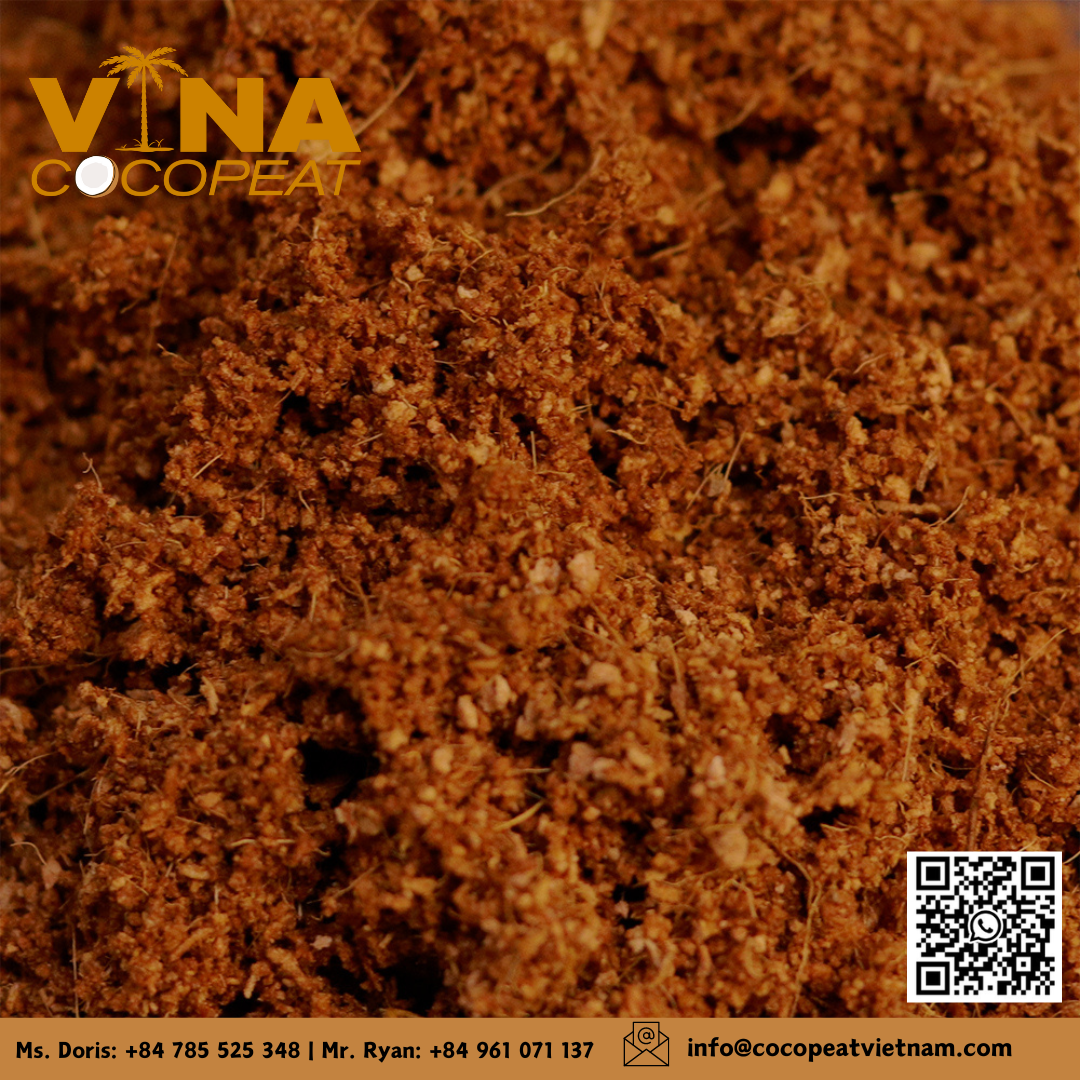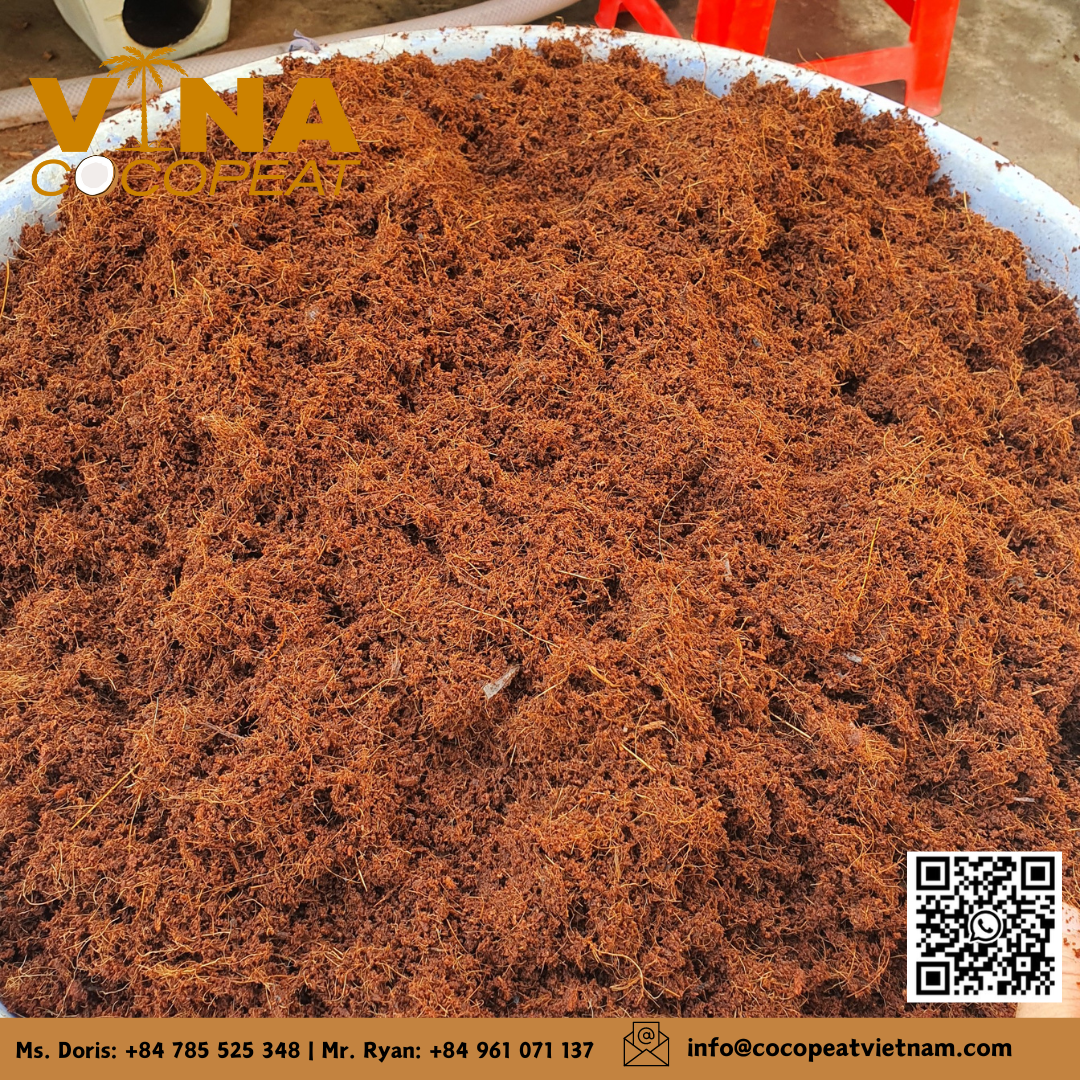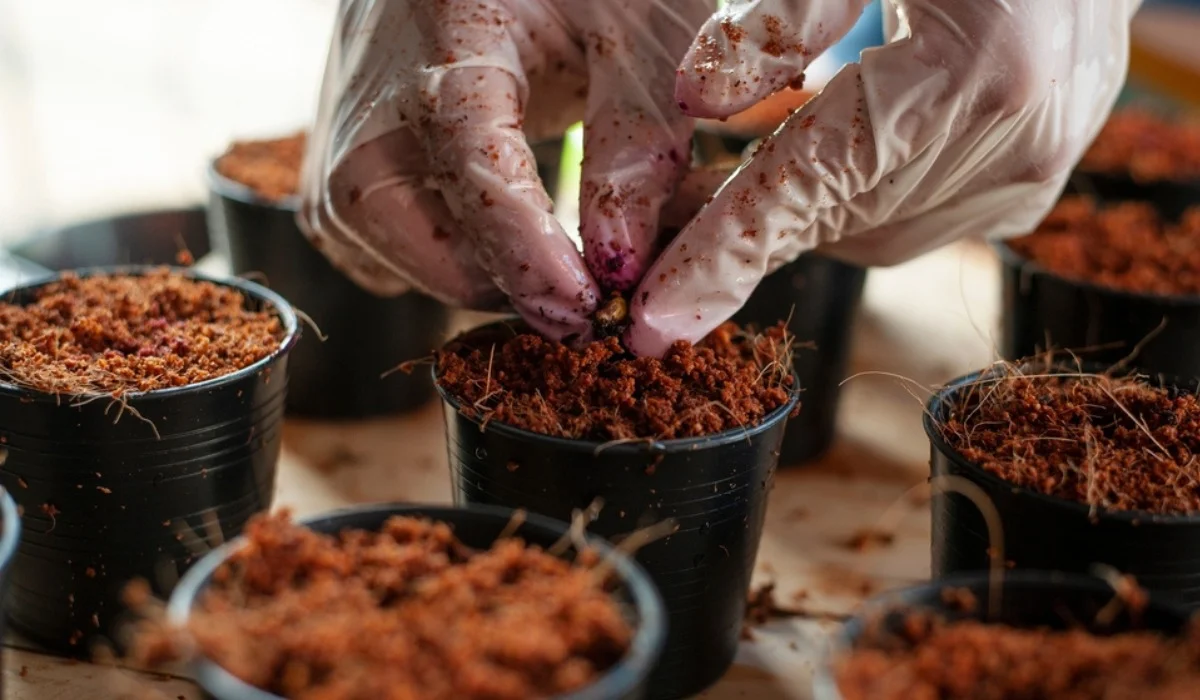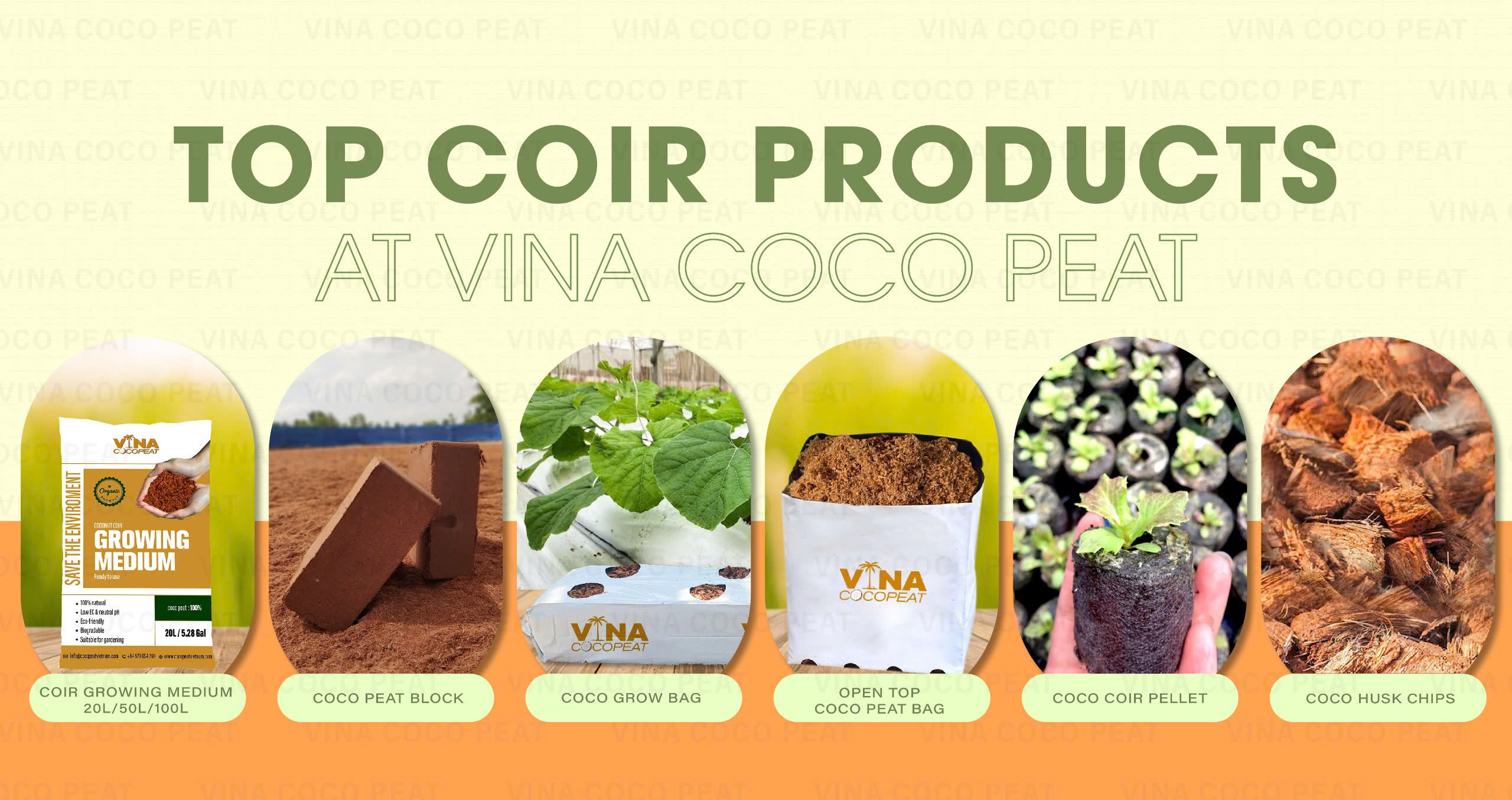Coco peat, a byproduct of the coconut industry, is one of the most adaptable organic growth media accessible today. Coco peat, a more environmentally friendly alternative to peat moss, has inherent disease resistance and excels at both water retention and plant aeration.

The advantages of using coco peat in gardening
- Entirely organic and sustainable.
- Composition is consistent and odorless.
- Excellent drainage and aeration capabilities.
- High ability for water retention and absorption
- Promotes vigorous root growth.
- Economical yet of great quality
Coco Peat ideal substratum and additive due to its stability and consistency
- Soft fruit
Strawberries, raspberries, blackberries, redcurrants, and blueberries are in more demand than ever. The most recent trend is to eat healthier. A wonderful discovery that nevertheless presents issues for growers: soft fruit plants are sensitive to shifting weather conditions and require highly acidic soil.
- Vegetables
Our substrates are the ideal growth medium for any vegetable or herb, including tomatoes, cucumbers, and peppers. Why? Thanks to our revolutionary manufacturing method, which results in an excellent air-water ratio.
- Flowers
Flower farmers are rapidly recognizing the benefits of coco substrates for their roses, gerberas, carnations, lilies, and other flowers. What happens when you cultivate on growbags, blocks, and briquettes?
Detailed Examination of the Advantages

Coco peat, being a natural byproduct, has no influence on the environment and successfully recycles coconut trash. With peat moss encountering sustainability issues due to its sluggish replenishment rate, gardeners are increasingly turning to eco-friendly alternatives such as coco peat. Its reusability and easy recycling make it an excellent choice for a variety of gardening setups, including greenhouses, potted plants, and outdoor gardens.
Choosing Cost-effective, High-Quality Coco Peat
At VINA COCO PEAT, we guarantee pathogen-free, evenly distributed coco peat briquettes. Choosing higher-grade coco peat not only assures optimal plant development but also makes gardening more fun owing to its odorlessness and user-friendliness. High-quality coco peat’s recyclability increases its usefulness in the garden, minimizing waste and recurring gardening expenditures. Coco peat is particularly affordable in bulk purchases, which can result in substantial savings for bigger gardens.
Plant-Friendly Characteristics of Coco Peat
Coco peat may be used to support a variety of plant varieties. Its excellent drainage and aeration properties make it a great medium for succulents when blended with pebbles in well-drained pots to prevent root rot. Furthermore, coco peat improves the texture of clay or sandy soils, encouraging the growth of robust roots. When combined with fertilizers, compost, and soil in raised beds, it offers an ideal environment for vegetable cultivation. However, because of its near-neutral pH level, gardeners should be aware of their plants’ pH requirements and alter the substrate accordingly.
Adding to the Versatility of Coco Peat

Coco peat’s capacity to retain water significantly lowers the frequency of watering, making it especially advantageous in drought-prone locations. This feature contributes to maintaining a balanced moisture level, which is critical for plant health. Furthermore, its aeration capabilities promote a healthy root environment, preventing frequent issues such as overwatering and root disease.
Sustainable Agriculture and Urban Gardening
The sustainability of coco peat is consistent with the concepts of organic farming and urban gardening. It is a perfect medium for rooftop gardens, balcony planters, and indoor gardening settings where space and environmental impact are important factors.
Improving the Soil Composition
Coco peat may be a game changer for gardeners that have low-quality soil. Its capacity to increase soil structure and nutrient availability makes it an ideal addition to plant beds. This improvement in soil quality can result in larger yields and healthier plants, making coco peat an important tool for both hobby gardeners and professional farmers.
Developing Mixes for Specific Plant Needs
Gardeners may adjust coco peat-based mixtures by adding perlite, vermiculite, or compost to match the medium to the demands of various plants. This customisation enables ideal growing conditions for a wide range of plant species, including delicate ornamentals and hearty crops.
Economic advantages for gardeners
The long-term economic benefits of employing coco peat cannot be overemphasized. Its durability and reusability allow gardeners to reuse the medium for numerous growth seasons, avoiding the need for frequent replacements. This feature, along with its bulk availability, makes coco peat an economical alternative for gardeners of all abilities.
Finally, coco peat stands out as an excellent solution for ecologically responsible and cost-effective gardening. Its adaptability, sustainability, and plant-friendly qualities make it an excellent medium for a wide range of gardening applications, from small indoor pots to huge outdoor gardens. Coco peat is set to become a mainstay in organic and eco-friendly gardening techniques as the gardening community becomes more conscious of its environmental impact and sustainability.
VINA COCO PEAT – THE MULTIPLE COCO PEAT PRODUCTS
VINA COCO PEAT could be a strong supplier choice for high-quality coco peat slabs, especially tailored for strawberry cultivation. VINA COCO PEAT would likely offer a range of coco peat products, including options like coco peat and husk chip mix slabs, to meet the specific needs of growers.

If you are looking for detailed information about our product specifications, pricing, or how they support strawberry cultivation, please contact us to know more details.
Ms. Doris: +84 785 525 348 (ZALO, WHATSAPP, WECHAT, LINE)
Mr. Ryan: +84 961 071 137 (ZALO, WHATSAPP, WECHAT)
한국 영업 담당자: +84 969 273 598 (Ms. Lan)
中文: +84 397 317 401 (Ms. Vi)
Email: info@cocopeatvietnam.com – www.cocopeatvietnam.com
